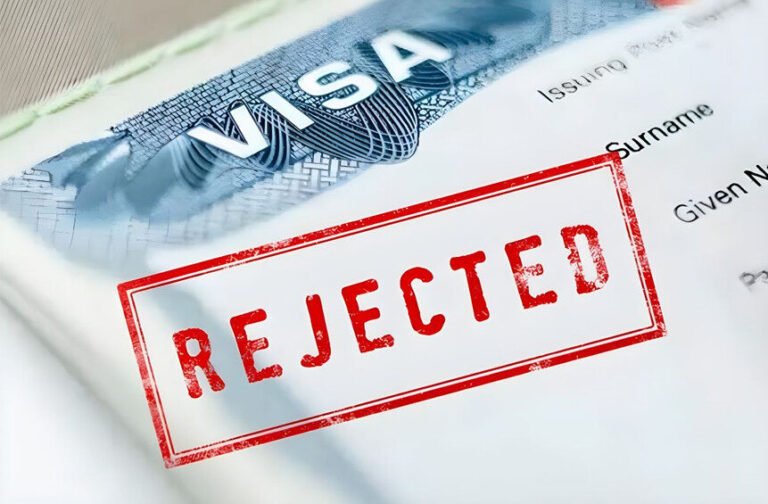Documents Required to Study Abroad from India 2026
Documents Required to Study Abroad from India 2026: Complete Checklist
Table of Contents
- Introduction to Study Abroad Documentation
- Academic Documents Required
- Standardized Test Scores
- Financial Documents and Proof of Funds
- Visa Documents for Indian Students
- Country-Specific Document Requirements
- Application Process Timeline
- Document Preparation Guidelines
- Common Documentation Mistakes to Avoid
- Digital Document Management
- Frequently Asked Questions
Introduction to Study Abroad Documentation
Preparing the right documents required to study abroad is the most critical step in your international education journey. A complete and well-organized study abroad checklist 2026 can make the difference between acceptance and rejection from your dream university.
According to recent data from the Ministry of Education, India, over 750,000 Indian students studied abroad in 2024, with numbers expected to exceed 1 million by 2026. Proper documentation is essential for navigating the complex processes of university applications and visa documents for Indian students.
Key Insight: Starting your document preparation at least 6-8 months before your intended intake can significantly reduce stress and improve your chances of success. The admission requirements abroad vary by country and institution, but certain core documents are universally required.
This comprehensive guide will walk you through every document you need for your study abroad journey in 2026, including country-specific requirements, preparation tips, and common pitfalls to avoid.
Get Free CounsellingAcademic Documents Required
Your academic records form the foundation of your study abroad application. Universities use these documents required to study abroad to assess your academic capabilities and determine your eligibility for their programs.
School Level Documents
- Class 10th Marksheet and Certificate
- Class 12th Marksheet and Certificate
- School Leaving Certificate
- School Transcripts (if applicable)
- School Character Certificate
Undergraduate Documents
- All Semester Marksheets
- Degree Certificate/Provisional Certificate
- Consolidated Marksheet
- University Transcripts
- Course Syllabi (for credit transfer)
Postgraduate Documents
- Bachelor's Degree Certificate
- All Semester Marksheets
- Master's Degree Documents (if applicable)
- Research Papers/Publications
- Thesis/Dissertation Abstract
Document Authentication Requirements
Most international universities require authenticated copies of your academic documents. The authentication process typically involves:
- Notarization: Documents certified by a licensed notary public
- Attestation: Verification by educational authorities
- Apostille: For countries in the Hague Convention
- University Seals: Official stamps from your institutions
The Indian Ministry of Education provides guidelines for document authentication. For countries like the USA, Canada, and UK, you may need to use services like World Education Services (WES) for credential evaluation.
Important: Always keep multiple sets of original documents and get extra copies attested. International courier services can take time, and having backup documents can prevent delays in your application process.
Standardized Test Scores
Standardized tests are crucial components of your study abroad checklist 2026. These scores help universities assess your readiness for academic programs conducted in English and compare applicants from different educational backgrounds.
English Language Proficiency Tests
- IELTS (International English Language Testing System): Accepted by UK, Australia, Canada, and most European countries
- TOEFL (Test of English as a Foreign Language): Preferred by US universities and many institutions worldwide
- PTE Academic (Pearson Test of English): Computer-based test gaining global acceptance
- Duolingo English Test: Online test accepted by many universities post-pandemic
Academic Entrance Tests
- SAT (Scholastic Assessment Test): For undergraduate programs in the US and some other countries
- ACT (American College Testing): Alternative to SAT for US undergraduate admissions
- GRE (Graduate Record Examination): For graduate programs worldwide, especially in STEM fields
- GMAT (Graduate Management Admission Test): For business schools and MBA programs
- MCAT/LSAT: For medical and law schools respectively
According to the Educational Testing Service (ETS), Indian students consistently rank among the top test-takers for GRE and TOEFL. Proper preparation and understanding of score requirements for your target universities are essential.
Get Free CounsellingFinancial Documents and Proof of Funds
Demonstrating financial capability is one of the most critical aspects of your overseas study documents. Immigration authorities need assurance that you can support yourself throughout your studies without illegal employment.
Financial Document Checklist
Bank Statements
Last 6 months of bank statements showing sufficient funds for tuition and living expenses
Education Loan Sanction Letter
If using an education loan, the sanction letter from a recognized financial institution
Sponsorship Documents
Affidavit of support from sponsors, their financial documents, and relationship proof
Income Tax Returns
Last 2-3 years of ITR documents for students and sponsors
Fixed Deposit Certificates
Proof of fixed deposits and other liquid investments
Property Valuation Documents
Additional proof of assets (not always required but helpful)
Country-Specific Financial Requirements
| Country | Minimum Funds Required | Documentation | Special Notes |
|---|---|---|---|
| United States | 1st year tuition + living costs | Bank statements, affidavit of support | No specific amount but must cover all expenses |
| United Kingdom | £1,334/month (outside London) £1,023/month (inside London) |
Bank statements (28-day requirement) | Funds must be in account for 28 consecutive days |
| Canada | CAD $10,000 + tuition for 1 year | GIC, bank statements, loan documents | Guaranteed Investment Certificate (GIC) required |
| Australia | AUD $21,041 + travel + tuition | Bank statements, financial capacity declaration | Funds must be genuinely available |
| Germany | €11,208 per year | Blocked account confirmation | Sperrkonto (blocked account) mandatory |
Financial Planning Tip: Start building your financial profile at least 6-12 months before applying. Sudden large deposits in your account can raise red flags during visa processing. Maintain consistent balance and be prepared to explain the source of all funds.
Visa Documents for Indian Students
The student visa application requires a specific set of visa documents for Indian students that prove your eligibility, intent to study, and financial capability.
Core Visa Application Documents
- Valid Passport: With at least 6 months validity beyond your intended stay
- Visa Application Form: Completed and signed
- Passport-sized Photographs: As per specific country requirements
- University Offer Letter: Unconditional offer from recognized institution
- Proof of Fee Payment: Receipts of tuition fee deposit
- Academic Documents: All attested certificates and transcripts
- Financial Documents: Complete proof of funds package
- English Test Scores: Original score reports
- Statement of Purpose: Explaining your study plans and career goals
- CV/Resume: Detailed academic and professional background
Additional Supporting Documents
- Medical Examination Reports: From approved panel physicians
- Police Clearance Certificate: No criminal record verification
- TB Test Results: Required for some countries
- Previous Visa Refusals: If applicable, with explanations
- Travel Insurance: Health coverage for duration of stay
The VFS Global website provides country-specific checklists for student visa applications. Always check the official immigration website of your destination country for the most current requirements.
Get Free CounsellingCountry-Specific Document Requirements
While many documents required to study abroad are universal, each country has specific requirements that Indian students must fulfill. Understanding these nuances is crucial for successful applications.
United States (F-1 Visa)
- Form I-20: Issued by the university after admission
- SEVIS Fee Receipt: Proof of Student and Exchange Visitor Information System payment
- DS-160 Confirmation: Online nonimmigrant visa application
- Visa Interview Appointment: Scheduled at US embassy/consulate
- Financial Documents: Showing 1+ years of expenses
Official information available on the US Department of State website.
United Kingdom (Student Visa)
- CAS (Confirmation of Acceptance for Studies): Unique reference number from university
- TB Test Certificate: From approved testing centers
- ATAS Certificate: For certain sensitive subjects
- Financial Evidence: Meeting specific maintenance requirements
- Academic Technology Approval Scheme: For research in sensitive areas
Complete checklist on the UK Government website.
Canada (Study Permit)
- Letter of Acceptance: From Designated Learning Institution (DLI)
- GIC (Guaranteed Investment Certificate): CAD $10,000+ investment
- Upfront Medical Examination: From panel physician
- Family Information Form: IMM 5645
- Digital Photo Requirements: Specific size and format
Detailed requirements on IRCC website.
Australia (Student Visa Subclass 500)
- Confirmation of Enrollment (CoE): From Australian institution
- Genuine Temporary Entrant (GTE) Statement: Personal statement
- Overseas Student Health Cover (OSHC): Health insurance proof
- Financial Capacity Evidence: Meeting minimum requirements
- English Proficiency Evidence: Test scores or exemptions
Complete document checklist on Australian Home Affairs.
Country-Specific Tip: Some countries have additional requirements based on your specific circumstances. For example, students under 18 may need additional guardian documents, while married students might need to provide marriage certificates and spouse documents if they're accompanying.
Application Process Timeline
Proper timing is essential when gathering your documents required to study abroad. This timeline will help you stay organized throughout the process.
Research Phase
Research universities and programs. Take diagnostic tests. Begin gathering basic academic documents.
Test Preparation
Register and prepare for required standardized tests (IELTS/TOEFL, GRE/GMAT/SAT).
Document Collection
Collect all academic transcripts. Get documents attested. Begin drafting statements and essays.
Financial Preparation
Arrange education loans if needed. Build financial documents. Maintain bank account consistency.
University Applications
Submit applications to chosen universities. Send required documents. Track application status.
Visa Preparation
After receiving offer letters, begin visa application. Complete medical exams. Finalize financial proof.
Final Steps
Attend visa interviews. Book flights. Arrange accommodation. Purchase travel insurance.
This timeline for your study abroad checklist 2026 ensures you have adequate time to gather all necessary overseas study documents without last-minute rush.
Get Free CounsellingDocument Preparation Guidelines
Proper preparation of your admission requirements abroad documents can significantly impact your application success. Follow these guidelines for optimal results.
Document Formatting Standards
- File Formats: PDF for digital submissions, high-quality scans
- File Naming: Use clear names (e.g., "Passport_FirstName_LastName.pdf")
- File Size: Compress files to meet upload limits without losing quality
- Color Scans: Always use color scanning for official documents
- Resolution: Minimum 300 DPI for clear readability
Translation Requirements
For documents not in English, certified translations are required:
- Use approved translation services
- Include translator credentials and contact information
- Ensure the translation matches the original document exactly
- Include both original and translated documents
Document Authentication Process
- Notarization: Get documents notarized by licensed notary public
- University Attestation: Get stamps from your educational institutions
- Government Authentication: State and central government attestation
- Embassy Legalization: For countries requiring embassy stamps
- Apostille: For Hague Convention member countries
Services like Apostille Services India can help navigate the complex authentication process for different countries.
Common Documentation Mistakes to Avoid
Many study abroad applications get delayed or rejected due to preventable errors in document preparation. Avoid these common mistakes with your documents required to study abroad:
Academic Document Errors
- Incomplete Transcripts: Missing semesters or years
- Unauthorized Translations: Using non-certified translators
- Poor Quality Scans: Blurry or unreadable documents
- Missing Back Pages: Forgetting to scan both sides of documents
- Inconsistent Information: Different names or dates across documents
Financial Document Pitfalls
- Sudden Large Deposits: Unexplained recent fund transfers
- Insufficient Funds: Not meeting minimum requirements
- Outdated Statements: Using bank statements beyond validity period
- Missing Sponsor Documents: Incomplete sponsorship proof
- Unclear Fund Sources: Unable to explain origin of money
Visa Application Mistakes
- Incomplete Forms: Missing information or signatures
- Incorrect Photos: Not meeting specific size/format requirements
- Missing Supporting Documents: Incomplete document packages
- Expired Documents: Using outdated test scores or medical reports
- Inconsistent Information: Contradictions between different documents
Quality Check Tip: Create a master checklist and have a second person review all your documents before submission. Fresh eyes can catch errors you might have missed. Double-check all dates, spellings, and consistency across your entire application package.
Digital Document Management
In 2026, most study abroad applications are processed digitally. Efficient management of your digital documents is crucial for a smooth application experience.
Digital Document Organization
- Create Master Folder: Organized by document categories
- Standardized Naming: Consistent file naming conventions
- Cloud Backup: Store documents on secure cloud services
- Version Control: Keep track of document versions and updates
- Access Sharing: Secure sharing with counselors and agents
Recommended Digital Tools
- Document Scanners: Mobile apps like Adobe Scan or CamScanner
- PDF Editors: For merging, splitting, and editing documents
- Cloud Storage: Google Drive, Dropbox, or OneDrive for backup
- Password Managers: For secure storage of login credentials
- Task Management: Trello or Asana for tracking deadlines
Security Considerations
- Encryption: Protect sensitive documents with encryption
- Secure Sharing: Use password protection for shared documents
- Regular Backups: Maintain multiple backup copies
- Access Control: Limit access to sensitive personal information
Platforms like the Common Application for US universities have specific digital document requirements that students should familiarize themselves with early in the process.
Frequently Asked Questions
We recommend preparing at least 5-7 sets of attested documents. You'll need multiple sets for: 1) University applications (usually 3-5 universities), 2) Visa application, 3) Scholarship applications, 4) Backup copies for emergencies, and 5) Personal records. Some countries require original documents for visa interviews, so having multiple attested copies ensures you always have what you need without delaying other applications.
Attestation is the process of verifying documents by various government authorities (state, central, and embassy). Apostille is a simplified authentication process for countries that are members of the Hague Convention. Apostilled documents don't need further embassy attestation for member countries. India is part of the Hague Convention, so for countries like USA, UK, Australia, and most European nations, apostille is sufficient. For non-member countries like UAE, Qatar, or Saudi Arabia, traditional attestation is required.
Yes, you can use your parents' bank statements, but you must provide additional documents: 1) Affidavit of support signed by your parents, 2) Relationship proof (birth certificate or passport), 3) Your parents' financial documents (IT returns, employment proof), and 4) A letter from your parents stating they will sponsor your education. Some countries have specific formats for these documents, so check the exact requirements for your destination country.
Academic documents don't technically "expire," but their acceptability depends on several factors: 1) Recent graduates (within 2-3 years) typically don't face issues, 2) If you have work experience, you may need to explain gaps, 3) Some professional courses or competitive programs may prefer recent academic records, 4) For PhD or research programs, recent academic work is more relevant. The key is that your documents should accurately represent your qualifications regardless of when you obtained them.
If you've lost original documents, take these steps immediately: 1) Contact your educational institutions for duplicate certificates (there's usually a process and fee), 2) For mark sheets, obtain attested copies from your university, 3) For school certificates, approach your school board for duplicates, 4) File a police report if necessary for lost documents, 5) Keep records of all communications regarding document replacement. Start this process early as obtaining duplicates can take several weeks or months.
Acceptance of digital signatures varies: 1) Most universities now accept digital signatures on application documents, 2) For official transcripts and degree certificates, wet signatures or raised seals are often still required, 3) Visa applications typically require original signatures, 4) Financial documents usually need bank manager signatures and stamps, 5) During COVID, many institutions temporarily accepted digital signatures, but policies are reverting. Always check specific requirements for each institution and application type. When in doubt, provide original signed documents.
Conclusion: Your Path to Successful Study Abroad Documentation
Preparing the complete set of documents required to study abroad is a meticulous but essential process for Indian students planning international education in 2026. A thorough study abroad checklist 2026 and early preparation can transform this daunting task into a manageable, step-by-step process.
Remember that each document in your visa documents for Indian students package tells a part of your story - your academic capabilities, financial stability, and genuine intention to pursue quality education abroad. Attention to detail, consistency across documents, and adherence to specific country requirements are key to successful applications.
At Vibedu, we understand that navigating the complex landscape of admission requirements abroad can be challenging. Our experts are dedicated to helping Indian students compile complete, accurate document packages that meet all university and immigration requirements.
Start your document preparation early, stay organized, and don't hesitate to seek professional guidance when needed. Your dream of study abroad begins with the right documents in place.
Get Free Counselling








